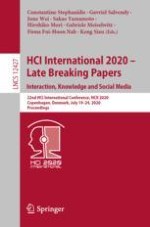2020 | OriginalPaper | Chapter
The Tributes and Perils of Social Media Use Practices in Ethiopian Socio-political Landscape
Authors : Elefelious Getachew Belay, Getachew Hailemariam Mengesha, Moges Ayele Asale
Published in: HCI International 2020 – Late Breaking Papers: Interaction, Knowledge and Social Media
Publisher: Springer International Publishing
Activate our intelligent search to find suitable subject content or patents.
Select sections of text to find matching patents with Artificial Intelligence. powered by
Select sections of text to find additional relevant content using AI-assisted search. powered by
